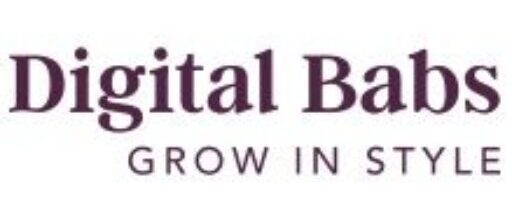AI SEO Optimization

AI SEO Optimization is a game-changing approach that combines artificial intelligence technologies with traditional SEO practices to help websites achieve higher search engine rankings.
The Power of AI in Modern SEO
AI is transforming standard SEO practices in several ways:
- Automated data analysis of vast search patterns
- Real-time adaptation to algorithm changes
- Predictive insights for content optimization
- Smart keyword clustering and targeting
Machine learning and Natural Language Processing (NLP) are now at the forefront of search engine optimization. These AI technologies interpret search intent, analyze content quality, and understand semantic relationships between search terms with unprecedented accuracy.
Key Benefits of AI-Powered SEO:
- Faster identification of ranking opportunities
- Enhanced content relevance and quality
- Improved user experience optimization
- Data-driven decision making
- Scalable SEO strategies
The integration of artificial intelligence SEO tools has become essential for businesses aiming to maintain competitive advantages in search rankings. These systems process millions of data points to generate actionable insights, helping websites adapt to evolving search engine requirements and user behaviors.
Machine learning SEO capabilities now extend beyond basic keyword research, offering sophisticated analysis of user intent, content performance, and market trends. This technological advancement enables marketers to create more targeted, effective SEO strategies while reducing manual workload.
Core Components of AI SEO Optimization
AI-powered SEO tools are changing the way websites are optimized with three key components:
1. Content Quality and Performance
- AI algorithms analyze readability scores, content structure, and topic relevance
- Machine learning identifies content gaps and improvement opportunities
- Natural Language Processing evaluates semantic relationships between topics
- Real-time content scoring guides writers toward SEO-friendly adjustments
2. Advanced Keyword Research and Backlink Analysis
- AI tools uncover high-value keyword opportunities by processing vast datasets
- Predictive analytics forecast keyword trends and search volume changes
- Smart backlink monitoring detects toxic links and identifies quality link-building prospects
- Automated competitor analysis reveals untapped keyword and content opportunities
3. Data-Driven User Experience Optimization
- AI analyzes user behavior patterns to identify engagement bottlenecks
- Heat mapping and scroll depth analysis reveal content consumption patterns
- Machine learning algorithms optimize page load times and mobile responsiveness
- Smart A/B testing suggests layout improvements based on user interaction data
These AI-powered components, part of the broader AI marketing landscape, work together to create a comprehensive SEO strategy. The tools process millions of data points to deliver actionable insights, helping websites achieve better search engine rankings and improved user engagement metrics.
Leveraging AI Tools for Content Strategy
AI-powered content tools are changing the way marketers create and plan their content. These smart systems look at large amounts of data to find popular topics and accurately predict how well content will perform.
Topic Discovery and Trend Analysis
AI tools help marketers discover new topics and analyze trends by:
- Monitoring social media conversations in real-time
- Analyzing search patterns on various platforms
- Identifying seasonal trends and emerging topics
- Tracking how competitors’ content is performing
AI-Driven Keyword Research
Advanced AI algorithms uncover valuable keyword opportunities by:
- Analyzing search intent patterns
- Identifying long-tail keyword variations
- Calculating keyword difficulty scores
- Suggesting related topics and questions
Automated Content Outline Generation
AI tools make content planning easier by:
- Creating structured outlines based on the most successful content
- Suggesting relevant subtopics and headers
- Including Latent Semantic Indexing (LSI) keywords
- Developing content briefs with word count recommendations
Content Gap Analysis
AI systems are great at finding untapped content opportunities by:
- Comparing your content with that of your competitors
- Identifying topics that are not adequately covered in your industry
- Analyzing user queries that don’t have satisfactory answers
- Spotting trending topics before they reach their peak popularity
These AI-powered solutions save time on research and make content more relevant. By using machine learning algorithms and natural language processing, marketers can create content strategies that are based on data and meet the needs of users and search engines.
Automation of Repetitive SEO Tasks with AI
AI-powered automation transforms time-consuming SEO tasks into efficient, streamlined processes. Modern AI SEO tools handle complex technical audits with precision, scanning thousands of pages in minutes to identify:
- Broken links and 404 errors
- Missing meta descriptions
- Duplicate content issues
- Site speed bottlenecks
- Mobile responsiveness problems
Automated Rank Tracking
AI systems track your website’s rankings across different search engines, devices, and geographical locations simultaneously. These tools provide real-time data on:
- Position changes for target keywords
- SERP feature opportunities
- Local ranking variations
- Mobile vs desktop performance
- Competition movement
Smart Backlink Analysis
AI-driven backlink monitoring tools deliver comprehensive insights by:
- Detecting toxic links automatically
- Evaluating link quality metrics
- Identifying link-building opportunities
- Monitoring competitor backlink profiles
- Alerting for lost or gained links
The automation of these technical tasks allows SEO professionals to focus on strategic decision-making and creative aspects of optimization. AI systems process vast amounts of data to generate actionable insights, spotting patterns and issues that might escape human attention. These tools adapt to search engine algorithm changes and evolve their analysis methods to maintain accuracy and relevance.
Enhancing Human Effort with Intelligent Automation
AI-powered SEO tools are powerful allies to human expertise, creating a combined approach that amplifies results. The combination of human strategic thinking with AI’s data processing capabilities unlocks new possibilities for SEO success.
Key Areas Where AI Enhances Human Decision-Making:
- Pattern Recognition: AI systems analyze vast datasets to identify trends human analysts might miss, spotting seasonal fluctuations and emerging market opportunities
- Competitor Analysis: Advanced algorithms track competitor movements across multiple domains, providing actionable insights for strategic positioning
- Content Gap Detection: AI tools map out content opportunities by analyzing search intent patterns and user behavior signals
- SERP Feature Optimization: Machine learning models identify opportunities for featured snippets, knowledge panels, and other rich results
Complex Optimization Opportunities Revealed by AI:
- Hidden keyword relationships and semantic connections between search terms
- User behavior patterns across different segments and demographics
- Technical SEO issues affecting specific page clusters
- Content performance metrics correlated with ranking changes
The true power of AI in SEO is its ability to process and analyze data at scale while humans focus on strategic decisions and creative solutions. This partnership allows SEO professionals to make data-backed decisions while maintaining the nuanced understanding that only human insight can provide.
AI tools excel at identifying subtle optimization opportunities that might go unnoticed through manual analysis. These include long-tail keyword variations, user intent shifts, and complex content relationships that impact search rankings.
Integration of AI SEO Tools with Existing Platforms
Modern AI SEO tools offer seamless integration capabilities with popular content management systems and analytics platforms. You can connect these tools directly to your existing tech stack through APIs and native plugins.
Common Integration Points:
- WordPress plugins for real-time SEO analysis
- Shopify app marketplace integrations
- Direct Google Analytics data import
- Google Search Console connectivity
- Custom API endpoints for specialized platforms
The integration process typically requires minimal technical expertise. Many AI SEO platforms provide step-by-step wizards to connect your existing tools and start analyzing data immediately.
Key Benefits of Integrated Systems:
- Single dashboard view of all SEO metrics
- Automated data synchronization
- Real-time content optimization suggestions
- Unified reporting across platforms
- Streamlined workflow management
Your content teams can access AI-powered insights directly within familiar interfaces. A content writer using WordPress sees SEO recommendations while drafting posts. Marketing managers track performance metrics without switching between multiple tools.
The unified data flow enables AI algorithms to learn from your specific audience behavior patterns. Your SEO tools become smarter by analyzing user interactions across your entire digital ecosystem, from website analytics to social media engagement metrics.
Specialized Applications: AI in Ecommerce SEO
AI-powered SEO automation is changing the game for ecommerce platforms, making it easier to improve product visibility and boost sales. With specialized algorithms at work, these systems can analyze large product catalogs and find ways to optimize listings across various channels.
1. Product Listing Optimization
AI systems scan product titles, descriptions, and metadata to ensure they are optimized for search engines and potential customers. Smart algorithms then suggest high-converting keywords based on search patterns, helping merchants stay ahead of the competition.
In addition, automated price and availability updates are implemented to maintain listing accuracy, while real-time competitor analysis guides pricing and content strategies. This comprehensive approach ensures that each product listing is fully optimized and stands out from the crowd.
2. Collection Page Enhancement
The collection pages on an ecommerce website play a crucial role in guiding users towards making a purchase. With AI-powered tools, these pages can be dynamically structured based on user behavior data, ensuring that the most relevant products are showcased.
Automated internal linking between related products further enhances user navigation, making it easier for customers to discover items they may be interested in. Additionally, AI-driven product grouping allows for better organization of collections, while smart filtering options based on popular search attributes provide users with personalized browsing experiences.
3. Google Shopping Optimization
Google Shopping has become an essential channel for driving traffic and sales in the ecommerce industry. To optimize product listings specifically for this platform, semantic keyword matching is employed to align products with search intent.
Automated product feed optimization ensures that titles and descriptions are compelling enough to attract clicks, while AI-powered bid management helps merchants make data-driven decisions when it comes to their shopping campaigns. By continuously monitoring performance data, dynamic updates can be made to further improve results.
4. Continuous Learning and Refinement
One of the key advantages of AI systems is their ability to learn and adapt over time. These tools continuously analyze user interactions, search patterns, and purchase behaviors to refine product data optimization strategies.
By studying successful product listings across different marketplaces, AI can identify winning tactics that can be replicated across an entire catalog. This scalability is particularly beneficial for merchants with large inventories who need to manage SEO efforts efficiently.
5. Handling Complex Tasks with Ease
Product data optimization often involves complex tasks such as attribute mapping (assigning specific characteristics to products), category assignment (placing products into relevant categories), and product tagging (adding descriptive tags). These tasks can be time-consuming when done manually, especially when dealing with thousands of SKUs (stock keeping units).
However, with the help of AI technology, these processes can be automated. This not only saves time but also ensures consistency in how products are categorized and tagged – important factors that contribute to better search visibility and user experience.
Semantic SEO and Multilingual Optimization Using AI
AI-powered semantic SEO is changing the way websites connect with global audiences through intelligent language processing. Modern semantic keyword research tools analyze search intent patterns across different languages, helping you create content that resonates with diverse market segments.
Key Benefits of AI-Driven Semantic Analysis:
- Automatic detection of related terms and phrases in target languages
- Natural language processing to match local search behaviors
- Real-time adaptation to regional search trends
- Cultural context preservation during content optimization
AI tools are great at identifying semantic relationships between keywords in different languages. These tools can analyze how users in various regions search for similar products or services, enabling precise content targeting without manual translation work.
Multilingual SEO Automation Features:
- Automated keyword clustering by language and intent
- Cross-language search volume analysis
- Regional SERP tracking and optimization
- Cultural nuance preservation in content
The AI systems take care of technical aspects like hreflang implementation and regional URL structures automatically. This automation removes the need for complex coding while ensuring SEO best practices are followed across all language versions.
Advanced machine learning algorithms continuously analyze user behavior patterns in different markets, providing actionable insights for content optimization. These insights help create market-specific content strategies that align with local search preferences and cultural contexts.
Popular Features Offered by Leading AI SEO Tools
Leading AI SEO tools pack powerful features designed to streamline your optimization efforts. Here’s what you’ll find in top-tier solutions:
1. Real-Time Content Analysis
- Live SEO scoring as you write
- Instant readability metrics
- Grammar and style suggestions
- Content length optimization
- Keyword density tracking
2. Advanced Search Intent Tools
- User behavior pattern analysis
- Search query categorization
- Intent-matching recommendations
- Competitive content gap detection
3. Smart Optimization Features
- Title tag and meta description generators
- Internal linking suggestions
- Image alt text recommendations
- Schema markup automation
- Mobile optimization checks
4. Data-Driven Insights
- Click-through rate predictions
- Ranking probability scores
- Content performance forecasting
- Competitor ranking analysis
5. Workflow Enhancement
- Content briefs generation
- Team collaboration tools
- Publishing schedule optimization
- Content revision tracking
- Performance reporting dashboards
These AI-powered features help you create search-optimized content that resonates with both search engines and users. You’ll spend less time on technical SEO tasks and focus on strategic decisions that drive results.
Best Practices for Implementing AI in SEO Strategies
AI-powered SEO tools bring remarkable efficiency, but their successful implementation requires strategic human oversight. Here’s how to maximize AI SEO optimization while maintaining content quality:
Review and Refinement Process
- Set up a structured content review workflow
- Fact-check AI-generated statistics and data points
- Verify technical SEO recommendations before implementation
- Cross-reference AI suggestions with industry best practices
Brand Voice Protection
- Create detailed brand voice guidelines for AI tools
- Customize AI settings to match your tone and style
- Monitor content output for consistency
- Adjust AI parameters based on performance data
Quality Control Measures
- Implement a scoring system for AI-generated content
- Track user engagement metrics for AI-optimized pages
- Compare AI recommendations against manual audits
- Document successful AI optimization patterns
Human Touch Integration
- Add personal insights to AI-generated content
- Incorporate real-world examples and case studies
- Blend storytelling elements with data-driven suggestions
- Maintain authenticity in customer communication
Successful AI SEO strategies balance automation with human expertise. Your content team should develop a systematic approach to reviewing AI outputs, ensuring each piece aligns with quality standards while preserving your unique brand identity. Regular calibration of AI tools helps maintain optimal performance and keeps your content authentic and engaging.
Choosing the Right Tools for Your Business Needs
Selecting appropriate AI tools for your SEO strategy requires careful consideration of several critical factors:
Budget Considerations:
- Monthly subscription costs vs. one-time purchases
- Scalability options as your business grows
- Return on investment potential
Technical Requirements:
- Integration capabilities with existing systems
- API access and limitations
- Data storage and processing capabilities
Feature Assessment:
- Keyword research depth and accuracy
- Content optimization capabilities
- Technical SEO audit functions
- Competitor analysis tools
- Reporting and analytics features
Business-Specific Needs:
- Industry-specific optimization requirements
- Content volume and frequency
- Target market geographical scope
- Multi-language support needs
You’ll need to evaluate each tool’s learning curve and user interface. Some AI SEO platforms offer intuitive dashboards suitable for beginners, while others provide advanced features requiring technical expertise. Consider your team’s technical proficiency and available resources for tool implementation.
The size of your website and content library impacts tool selection. Small businesses might benefit from all-in-one solutions, while larger enterprises often require specialized tools for specific aspects of their SEO strategy. Test potential tools through free trials or demos to ensure they meet your specific requirements before making a long-term commitment.
Conclusion
The future of AI in SEO presents boundless opportunities for digital marketers and businesses. AI SEO optimization has changed the way we approach search engine rankings, making data-driven decisions more accessible and actionable than ever before.
Your success in the digital world depends on finding the right balance between human expertise and AI capabilities. While AI tools are great at processing large amounts of data and finding patterns, your strategic insight is still important in:
- Interpreting AI-generated recommendations
- Making nuanced decisions about brand voice
- Understanding subtle market nuances
- Maintaining authentic connections with your audience
The key to improving search rankings is to embrace this partnership between humans and AI. Start small, try out different AI tools, and gradually expand your AI SEO optimization strategy as you become more comfortable with the technology.
Remember: AI is not here to replace human marketers but to enhance their abilities. By combining your creativity and strategic thinking with AI’s analytical power, you’ll create a strong SEO strategy that brings long-lasting results.
The digital world keeps changing, and those who adapt to these technological advances while still being human will succeed. Take action today – discover AI SEO tools, test what they can do, and see your search visibility improve.
FAQs (Frequently Asked Questions)
What is AI SEO Optimization and why is it important?
AI SEO Optimization refers to the use of artificial intelligence technologies, including machine learning and natural language processing (NLP), to enhance traditional SEO practices. It plays a crucial role in improving content quality, keyword analysis, backlink monitoring, and user experience, thereby transforming how websites achieve higher search engine rankings.
How does AI improve content strategy in SEO?
AI assists in content strategy by enabling content brainstorming, keyword discovery, and automated content outline generation. By analyzing search trends and user intent, AI helps identify trending topics and relevant keywords, uncovering new content opportunities that align with audience interests for better engagement and visibility.
What repetitive SEO tasks can be automated using AI tools?
AI can automate several repetitive SEO tasks such as conducting technical site audits, rank tracking across multiple devices and locations, and continuous backlink monitoring. This automation saves time, increases accuracy, and allows SEO professionals to focus on strategic decision-making.
How can human expertise be enhanced through AI in SEO?
Human-AI collaboration in SEO combines the nuanced understanding of human experts with AI-generated insights. This partnership facilitates better decision-making by identifying complex optimization opportunities that are difficult to detect manually, leading to more effective SEO strategies.
What are the benefits of integrating AI SEO tools with existing platforms?
Integrating AI-powered SEO tools with existing content management systems (CMS) and analytics platforms enables seamless workflows. This integration allows real-time data analysis, efficient content optimization, and consolidated reporting, enhancing overall SEO performance without disrupting current operations.
How is AI applied specifically in Ecommerce SEO?
In Ecommerce SEO, AI automates product data optimization and enhances Google Shopping visibility through semantic keyword matching. It optimizes product listings and collection pages using advanced algorithms to improve search rankings and attract targeted traffic effectively.



